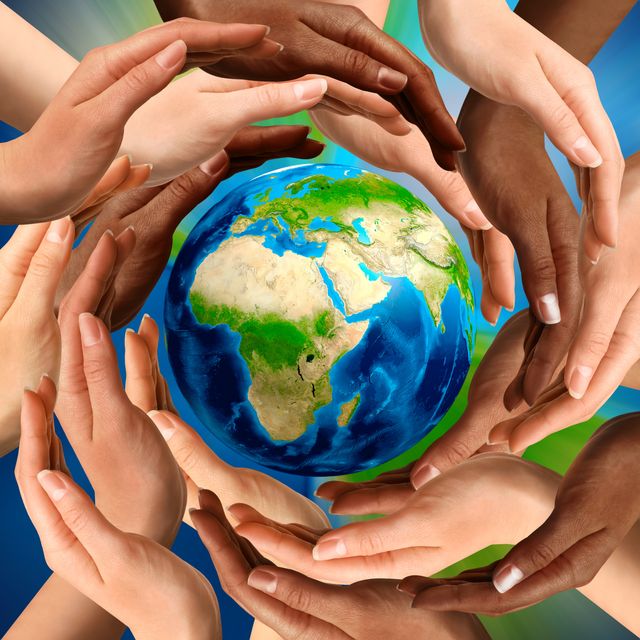In an epoch characterized by discord and division, the Bahá’í teachings emerge as a luminous beacon, advocating for pathways to oneness and the recognition of our shared humanity. At the core of these teachings lies the profound assertion that humanity constitutes a singular entity, irrespective of superficial distinctions such as nation, race, or religion. This perspective challenges the conventional paradigms of existence, urging individuals to transcend fragmented identities and embrace a more holistic understanding of global interconnection.
The first essential facet of Bahá’í teachings is the doctrine of the oneness of humanity. This pivotal principle articulates that every individual is inherently worthy, endowed with the potential for greatness. The Bahá’í view posits that differences among people should not be a source of contention; rather, they should be embraced as a rich tapestry that enhances the human experience. Such a perspective necessitates a paradigm shift from the deeply ingrained societal focus on individualism toward a collective ethos grounded in shared responsibilities and mutual respect.
Interconnectedness forms the bedrock of Bahá’í philosophy. The recognition that all human beings are interconnected engenders a sense of belonging that transcends geographical boundaries. This is particularly evident in the Bahá’í emphasis on community building. Communities are envisioned not merely as groups of people but as cohesive units where love, compassion, and collaboration flourish. The fundamental goal is the empowerment of all individuals to contribute positively to their communities, fostering environments where diversity is celebrated and cooperation is the norm.
Moreover, the Bahá’í teachings advocate for the elimination of all forms of prejudice, including but not limited to racial, religious, and gender biases. This call to action encourages adherents to introspectively examine their own beliefs and attitudes, dismantling internalized prejudices that may impede the flow of genuine understanding and empathy toward others. The deliberate cultivation of unity amid diversity is essential in creating a global society that values every person’s contributions, igniting a ripple effect of positive change.
In pursuit of unity, Bahá’í teachings emphasize the crucial role of education. Knowledge is seen not only as a means for personal advancement but also as a transformative force that can uplift entire communities. The concept of universal education underpins the belief that every individual, regardless of their socio-economic background, must have access to education that fosters critical thinking, ethical reasoning, and an understanding of global citizenship. Educated individuals are better equipped to contribute to societal well-being and, consequently, to the realization of oneness.
Integral to this educational pursuit is the idea of service to humanity. The Bahá’í faith conceives of service as a noble endeavor that transcends personal gain and encompasses a dedication to societal upliftment. This sense of altruism spurs individuals to engage with pressing global issues, such as poverty, inequality, and environmental sustainability. Through acts of service, individuals can foster bonds that unify diverse populations, creating a shared vision that emphasizes cooperative progress and the betterment of human life.
The Bahá’í faith also addresses the critical challenges obstructing the pathway to global oneness—such as the proliferation of conflict and the ramifications of materialism. Acknowledging the detrimental effects of militarism and aggression, Bahá’í teachings promote the exploration of diplomatic solutions and conflict resolution mechanisms that prioritize dialogue and understanding. Furthermore, it critiques rampant materialism, advocating a balanced approach toward both spiritual and material pursuits, ensuring that the quest for advancement does not come at the expense of moral integrity.
In the realm of governance, the Bahá’í teachings propose the establishment of democratic principles that facilitate universal participation while fostering transparency and accountability. Political structures grounded in justice and equity are paramount to creating a society where all voices are heard and all individuals can contribute to civic life. This emphasis on just governance reinforces the belief that collective decision-making is vital for addressing global challenges, paving the way toward collaborative efforts to achieve peace and unity.
One should also acknowledge the role of spirituality in nurturing our shared humanity. The Bahá’í teachings articulate a concept of spirituality that transcends religious affiliations, encouraging individuals to forge their own spiritual paths while recognizing the validity of others. This shared spiritual quest fosters profound respect for different traditions, promoting interfaith dialogue as a means of building bridges between disparate groups. Such dialogues are instrumental in mitigating tensions and promoting understanding, laying the foundation for harmonious co-existence.
In conclusion, the teachings of the Bahá’í faith illuminate various pathways to achieving oneness and recognizing our shared humanity. By advocating for the oneness of mankind, embracing diversity, promoting education and service, supporting just governance, and fostering interfaith understanding, the Bahá’í community offers a comprehensive framework for addressing the pressing challenges of our time. As individuals and societies navigate the complexities of the modern world, the principles of Bahá’í teachings serve as a guide toward a more unified and compassionate global community, urging us all to play our part in cultivating a world where oneness is both a aspiration and a reality.
